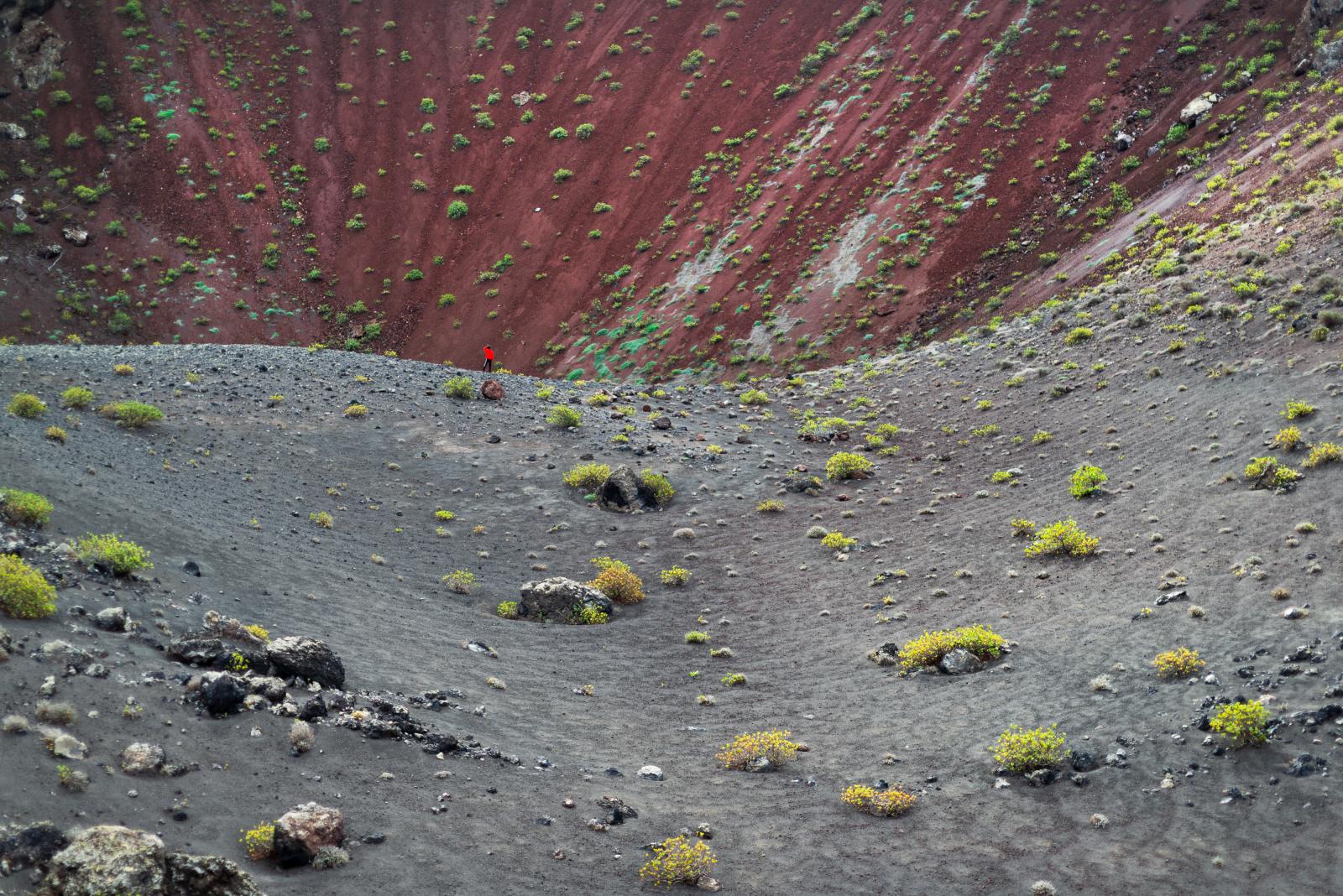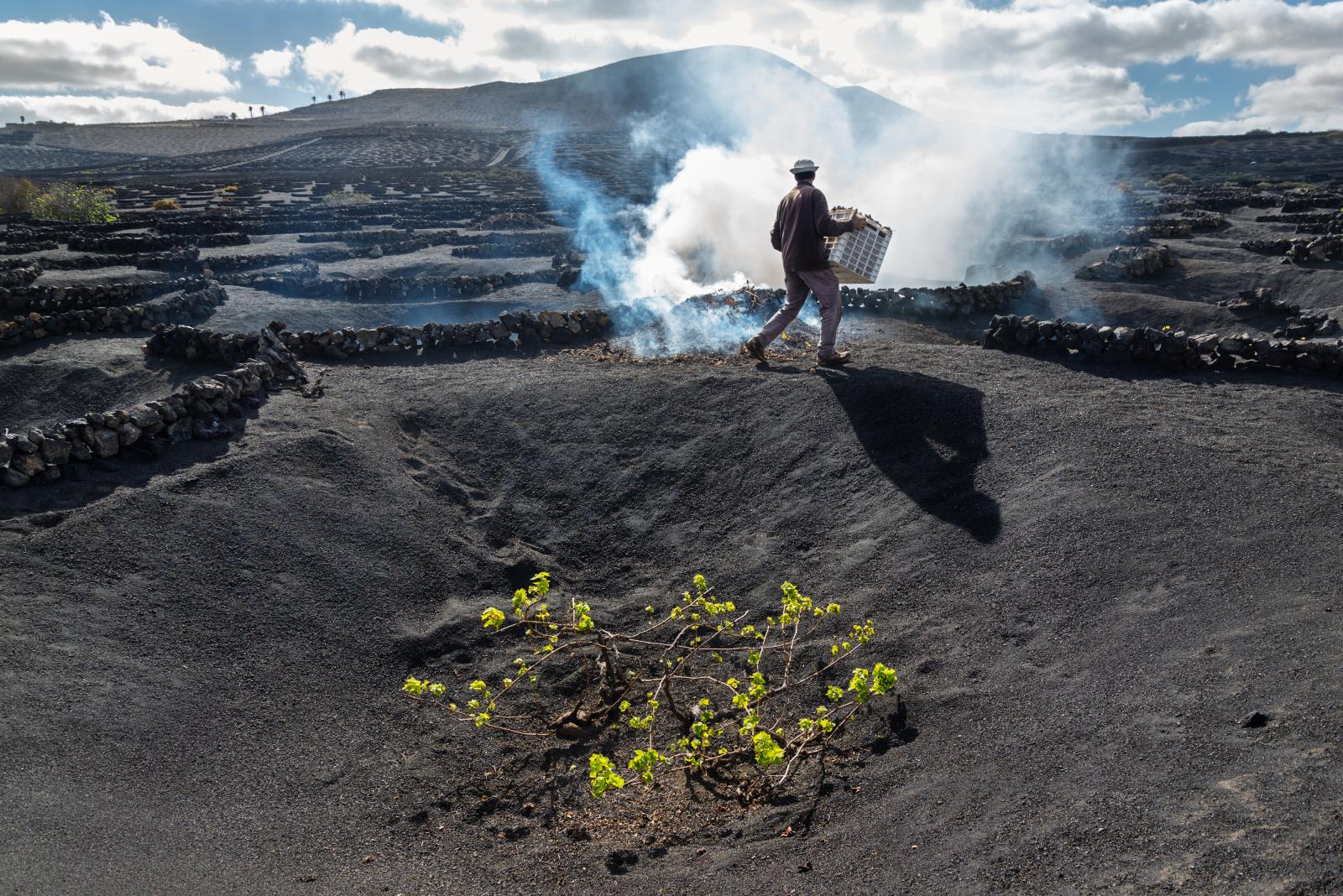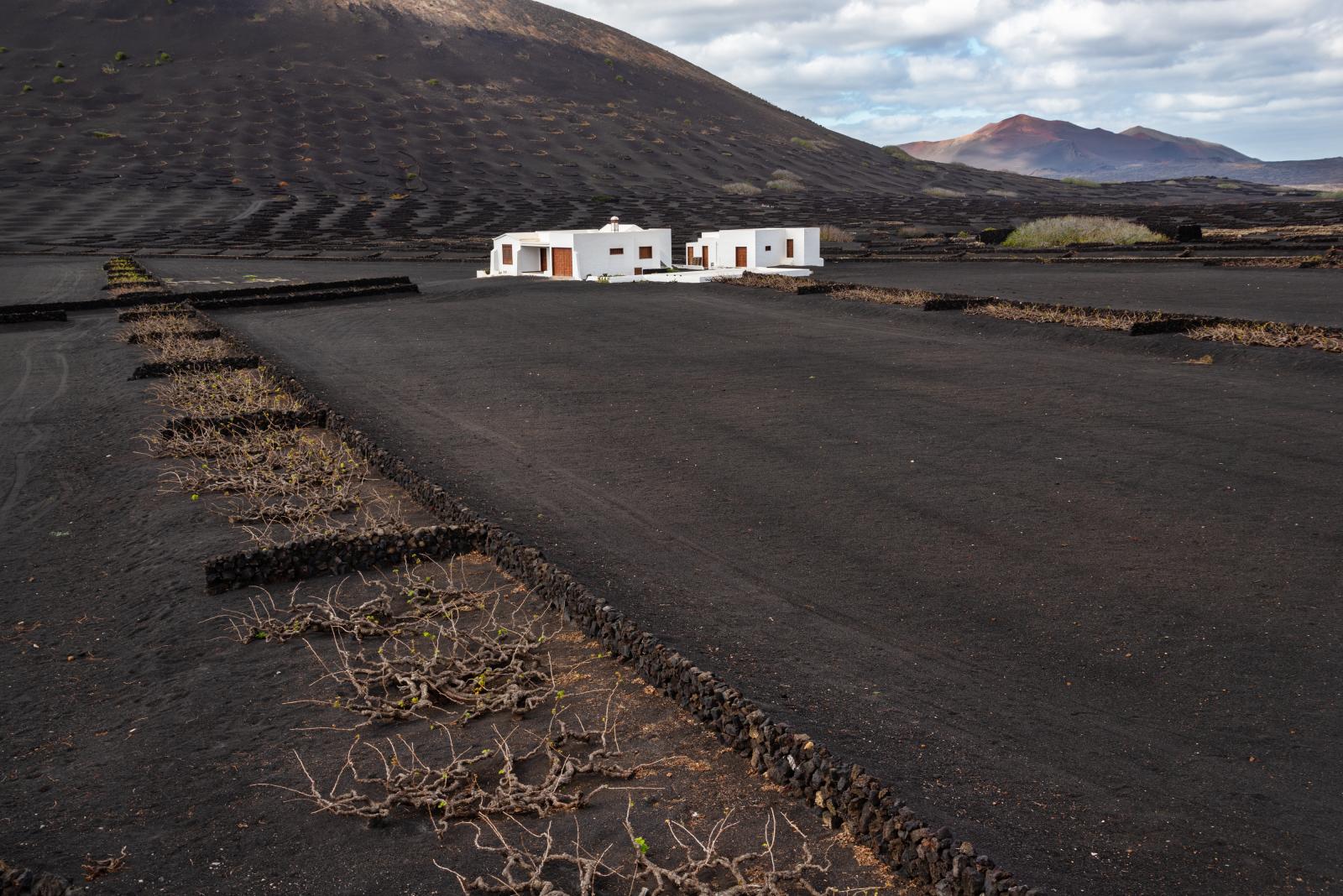Public Story
Vine and Scorched Land
Summary
In 1730, a massive volcanic eruption changed the island of Lanzarote forever. For six years, the earth boiled and trembled. When the volcanoes finally fell asleep, people woke up to a new reality – to life in a black desert, in the middle of the Atlantic Ocean. To survive in their new environment, the local farmers developed a unique agricultural system; they channeled the volcanic soil, overcame harsh weather conditions, and created an ecosystem that does not exist anywhere else in the world.
After the eruptions, the farmers discovered that the Picón, a pumice-like volcanic stone, absorbs the moisture of the night-dew and reduces evaporation. As the average rainfall of the island stands at four inches a year, the Picón was a blessing. The land became fertile and the farmers started to plant grapevines, figs, and vegetables in two-meters deep pits, surrounded by stone walls. Without irrigation, electricity, and heavy machinery, this sisyphean method allowed the roots to thrive in the rich and moist inner soil and kept the plants out of the desiccating trade winds. Soon, the lunar-like plains were covered by thousands of green grapevines – the result of creativity and hard manual work.
As agriculture deepened its roots in the island’s culture, it formed traditions and shaped daily routines. However, today’s modernization and globalization risk this unique lifestyle with extinction. Out of Lanzarote’s 150,000 residents – only 1,500 still work in agriculture. The warm weather and virgin coastlines attract three million tourists a year and the young generation of Lanzarote prefers to work in the blooming, more convenient tourism industry. And this is not the only challenge, as, in 1993, UNESCO declared Lanzarote a biosphere reserve; a status that limits land development and preserves the landscapes and nature. Although this status protects the environment, it also prevents the expansion of fields and farmlands. With the number of winegrowers falling, and climate change wreaking havoc, the future of agriculture in Lanzarote appears more challenging than ever.































